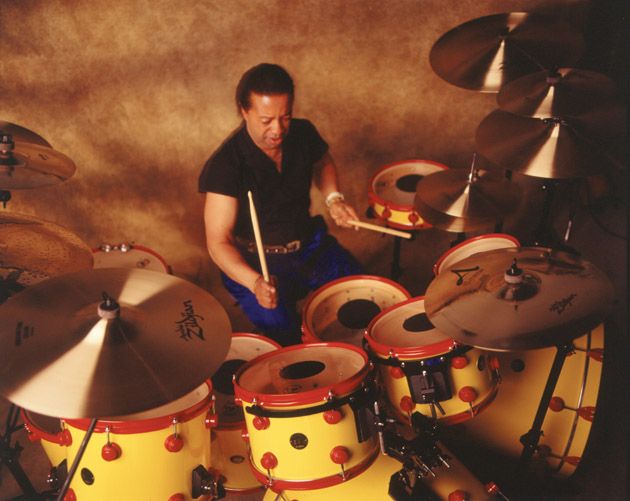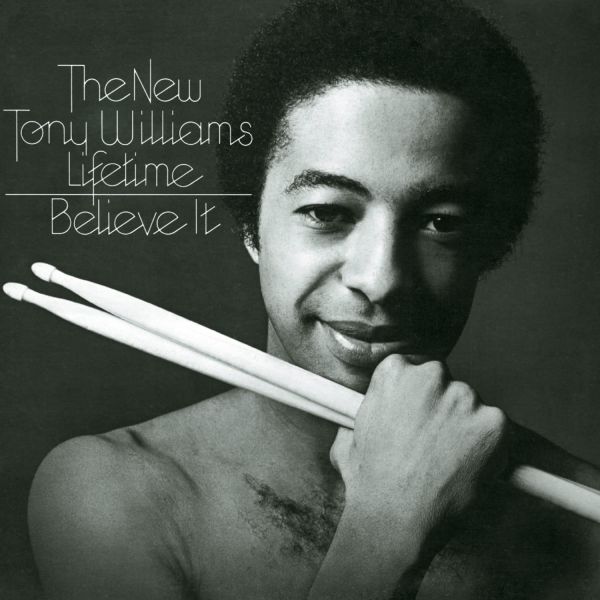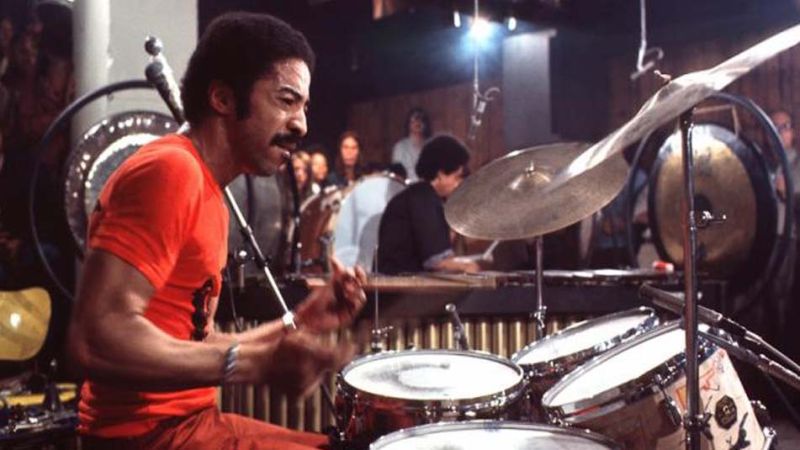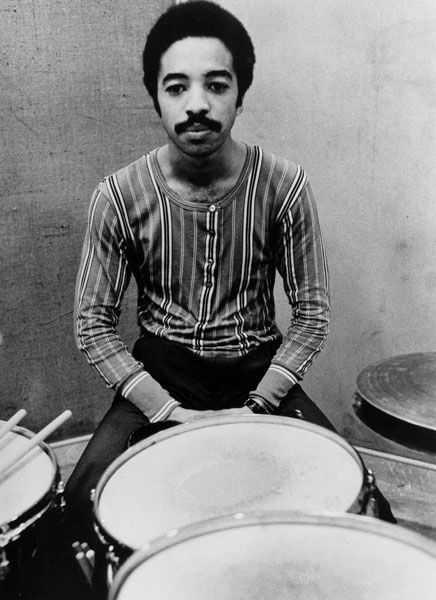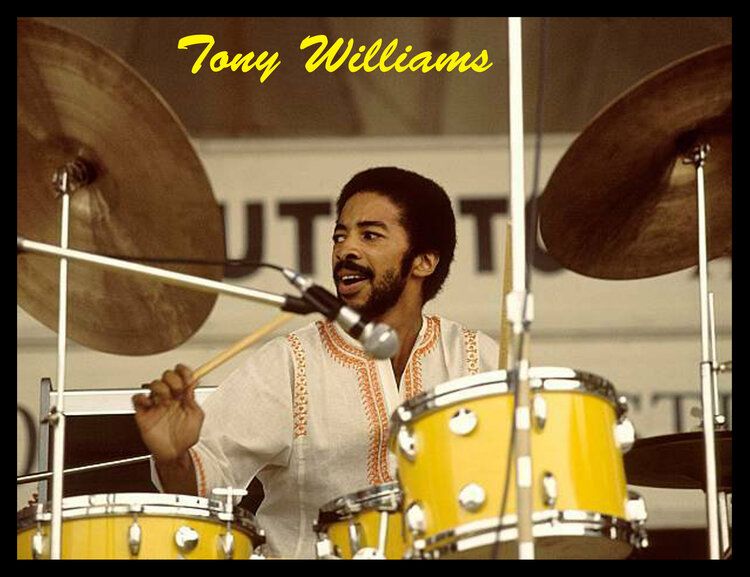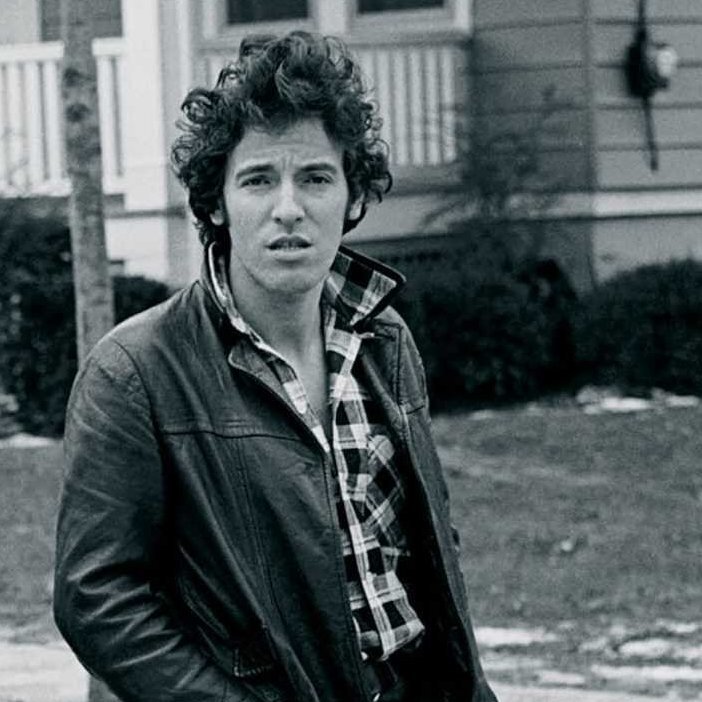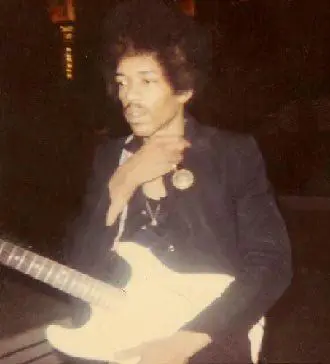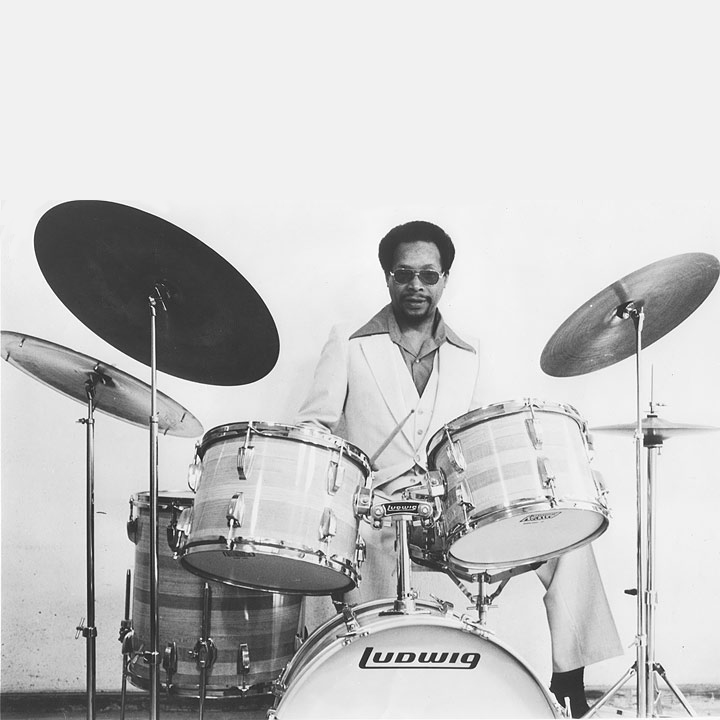Tony Williams
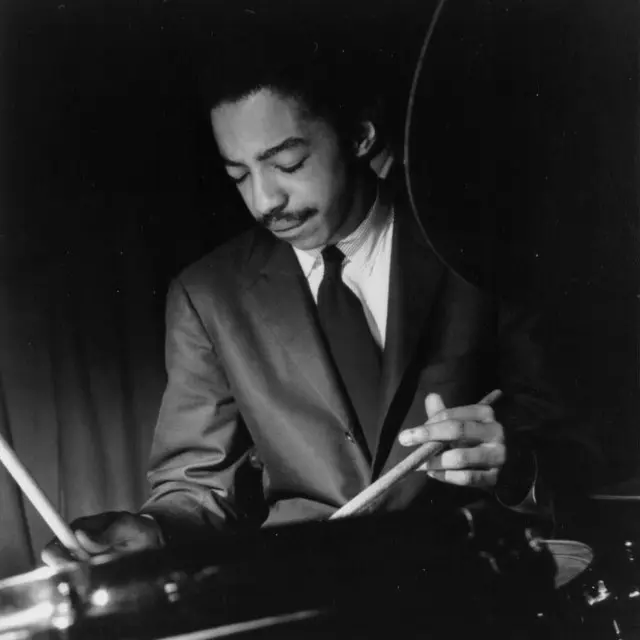
Born Anthony Tillmon Williams in Chicago in 1945 and raised in Boston, Tony Williams is widely considered one of the most inventive and influential jazz drummers of the 20th century. A fusion pioneer, he launched his career with Miles Davis, who was quoted as saying, “A drummer like Tony comes around only once in 30 years.”
As Williams told DownBeat magazine’s John Ephland years after his rise to fame, “I wouldn’t change anything that I’ve done because it’s all brought me to where I am and where I am is a good place to be.” He played with musicians as diverse as jazz icons John Coltrane and Thelonious Monk, rock superstars Jimi Hendrix and Bruce Springsteen and avant-garde classical group the Kronos Quartet.
MUSICAL BEGINNINGS, MOVE TO NEW YORK CITY
Williams’ family moved to Boston when he was a toddler and his father, Tillmon Williams, introduced him to music at the various jazz clubs around the city, where the elder Williams played saxophone on the weekends. “I would sit in the audience when I was a kid and just watch the drummer,” Williams told Ephland. One night, when he was nine years old, Williams asked his father if he could sit with the band at one of the clubs, which was his first time in front of an audience. By age 11, he was playing in the Boston clubs on his own, by age 12 he’s joined Art Blakey’s band and at age 13 he became part of Max Roach’s ensemble.
In his teens, Williams took private lessons from Alan Dawson, a teacher at Berklee College of Music, but never went to Berklee. By age 15, he’d gained a reputation as one of the best drummers in Boston – certainly the best among his age group by far – and he spent adolescence gigging with jazzmen Sam Rivers, Gil Evans, Eric Dolphy and Cecil Taylor. When he was 16, Jackie McLean saw him playing in Boston and invited him to New York City, where he wound up living for the rest of his life. “Jackie was the reason for me to really get to where I am,” Williams told Ephland. “He was the link.”
UNIQUE HERITAGE, PIONEERING STYLE
Williams was of African, Portuguese and Chinese descent, which more than likely influenced his particular drumming style, which was extremely unique among drummers of his generation. He was also a songwriter and considered composition and drumming to be of equal importance – and risky. “Every time I go on stage to play, I’m risking,” he once said. “That’s part of my job and part of my makeup. That’s what I do best and it’s part of the way I play.” Known for his polyrhythmic style, where two or more rhythms are played simultaneously at the same tempo, Tony’s pioneering style helped redefine the role of rhythm in jazz, though he based it on what’d he’d learned from drummers who’d been around for decades before he was born.
“Williams is often thought of as a modernistic player, but he spent these early years playing with a wide range of musicians, practicing the fundamentals, and studying the history of jazz,” according to a 2022 article in DownBeat. “When I was a kid, I would buy every record I could find with Max Roach on it and then I would play exactly what he played on the record, solos and everything,” Williams was quoted as saying in the DownBeat piece. “I also did that with Art Blakey, Philly Joe Jones, Jimmy Cobb, Roy Haynes and all the drummers I admired. People try to get into drums today, and after a year they’re working on their own style. You must first spend a long time doing everything that the great drummers do. Not only do you learn how to play something, but you also learn why it was played.”
LIFE-TIME, THE TONY WILLIAMS LIFETIME, EMERGENCY
Wiliams recorded his debut album, Life-Time, in 1964 and Blue Note released it that same year. The disc featured tenor saxophonist Sam Rivers, vibraphonist Bobby Hutcherson, pianist Herbie Hancock and bassists Gary Peacock and Richard Davis. In 1969, he formed a trio called The Tony Williams Lifetime with John McLaughlin on guitar and Larry Young on organ. The group is combined elements of jazz, R&B and rock, spearheading the fusion movement of the ‘70s.
Their first album, Emergency, was rejected by the jazz community at the time of its release but is now considered by many to be a classic. British singer-songwriter Andy Partridge of XTC has called Emergency his all-time favorite album, saying that that hearing it in 1969 (at the insistence of a friend) was a vital moment in expanding his musical tastes beyond conventional guitar pop and rock. The Tony Williams Lifetime disbanded in 1975, after which Williams put together a band quite logically called The New Tony Williams Lifetime featuring bassist Tony Newton, pianist Alan Pasqua and English guitarist Allan Holdsworth. They cut two albums for Columbia Records, Believe It and Million Dollar Legs.
TONY WILLIAMS ALL STARS, PUBLIC IMAGE LIMITED, TEACHING, DEATH
Williams performed in bands with a wide range of notable musicians, mostly within the jazz category including those mentioned above plus jazz and fusion luminaries such as Mulgrew Miller, Sonny Rollins, Wynton Marsalis, Freddie Hubbard, Wayne Shorter and Jaco Pastorius, the latter two highly regarded from their stellar jazz-fusion combo Weather Report. In 1978, he toured Japan with The Tony Williams All Stars, which included guitarist Ronnie Montrose, keyboardist Brian Auger, bassist Mario Cipollina (of Huey Lewis and the News) and drummer Billy Cobham.
In a notable venture into the world of rock and postpunk, Williams also worked with Public Image Limited, fronted by former Sex Pistol John Lydon, recording the LP Album in 1986 (also known as Compact Disc, Cassette or mp3 depending on the format). He played on three songs, “FFF,” “Home” and “Rise,” the last of which was a modest hi. The other drummer on the album was Ginger Baker of Cream; that band’s bassist, Jack Bruce, was an original member of The Tony Williams Lifetime.
Williams lived and taught in the San Francisco area until his death in 1997 at age 51 from a heart attack following a routine gallbladder surgery operation. One of his final recordings was The Last Wave by the trio Arcana, a recording arranged and overseen by prolific bassist Bill Laswell.
(by Karl Sharicz)

